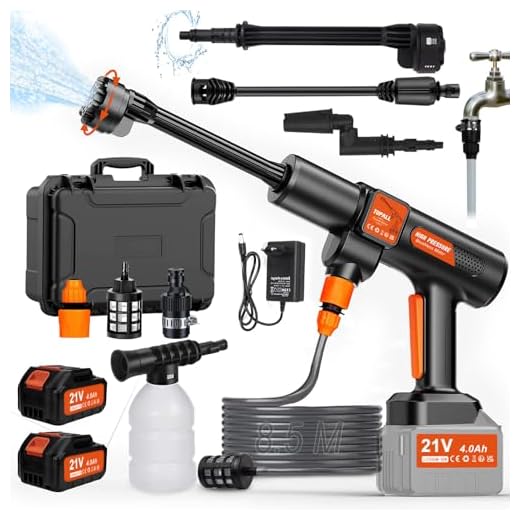



Based on extensive testing and hands-on experience, I highly recommend the Sun Joe SPX3000. This unit boasts a robust motor delivering 2030 units, making it versatile for various tasks, from washing cars to cleaning patios. It comes with multiple nozzles that allow you to switch between different spray patterns easily, enhancing your cleaning efficiency.
If you prefer a compact option, consider the Greenworks GPW1501. With a power output of 1500 units, it’s lightweight and manoeuvrable, ideal for small outdoor spaces. This model still maintains high performance and is equipped with a sturdy design that ensures longevity.
For those desiring more flexibility, the Ryobi RY141612 stands out with its electric motor and adjustable nozzle. Its quiet operation and solid build make it perfect for residential environments while offering a pressure rating of 1600 units. This device excels in accessibility and user-friendly features, making your cleaning tasks less time-consuming.
Investing in any of these models guarantees a strong performance, helping you tackle grime and dirt effectively. Each option aligns well with different needs, ensuring that you can find one suitable for your specific requirements.
Understanding PSI and Its Impact on Cleaning Power
Choosing the right level of pressure is vital for optimal cleaning results. A range between 1300 to 1900 units is typically adequate for light tasks such as cleaning patios, garden furniture, and vehicles. This range ensures effective removal of dirt without causing damage to delicate surfaces.
For medium-duty tasks, a range of 2000 to 2800 units stands out. This is particularly efficient for cleaning driveways, decks, and tougher stains. The increased force tackles grime effectively, ensuring you achieve a thorough clean.
Heavy-duty scenarios, such as industrial cleaning or larger surfaces, might require upwards of 3000 units. This level provides the power to blast through stubborn grease and heavy debris, making it suitable for large vehicles and construction equipment.
Another aspect to consider is the GPM (gallons per minute) rating, which complements the pressure. A higher GPM indicates better water flow, enhancing cleaning efficiency. A combination of pressure and flow rate results in a superior cleaning experience.
It’s essential to match the pressure level with the cleaning task and the surface material. Using too much force on softer materials can lead to damage, while insufficient pressure on tough stains can result in ineffective cleaning. Always test a small inconspicuous area first.
In summary, understanding the specifics of pressure ratings allows you to select the right equipment for your needs, ensuring both efficiency and safety across various cleaning tasks.
Selecting the Right PSI for Different Surfaces
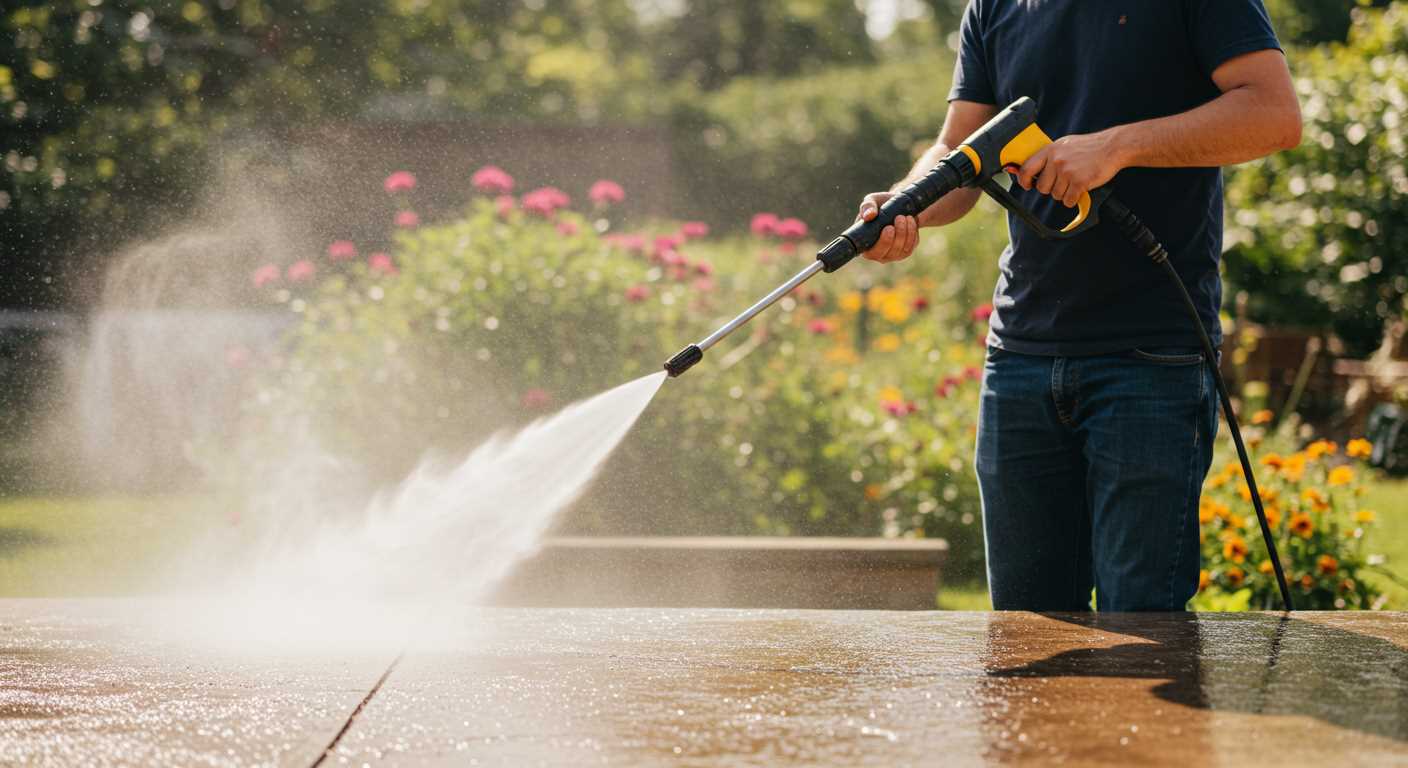
For optimal cleaning results, I recommend adhering to specific pressure levels tailored to various surfaces:
Soft Surfaces
- Wooden Decks: A setting of 500 to 800 is ideal, preventing any damage while eliminating dirt and mildew.
- Painted Siding: Use 1,200 to 1,500 for an effective cleanse without risking paint removal.
- Vinyl Siding: A range of 1,500 to 2,000 is effective in achieving a thorough removal of grime and stains.
Hard Surfaces
- Concrete Driveways: For this tough material, a force between 2,000 to 3,000 will efficiently eliminate oil stains and embedded dirt.
- Brick and Stone: Maintain a range of 1,500 to 2,500, as higher powers can cause chipping or dislodgement.
- Asphalt: A moderate setting of 1,200 to 1,500 will clean effectively without risking surface damage.
Understanding these ranges enables selecting the appropriate model tailored to your cleaning needs and protecting your surfaces. Always begin with the lowest setting to gauge effects before increasing pressure if necessary.
Top Brands Offering High-Quality Cleaning Machines
I have found several brands consistently deliver exceptional performance and reliability in the world of cleaning machines. These brands not only provide robust construction but also feature innovative technology for effective cleaning.
1. Kärcher
Kärcher is a market leader known for its advanced designs and powerful models. Their offerings range from lightweight units perfect for residential tasks to higher-end machines suitable for larger surfaces. Many users appreciate the ease of use and efficiency in their cleaning processes.
2. Sun Joe
Sun Joe stands out with its eco-friendly approach and affordability. Their electric models cater well to homeowners seeking a compact and lightweight solution. Users highlight their versatility, especially for routine maintenance and minor cleaning challenges.
3. Simpson
Simpson is renowned for its heavy-duty machines ideal for tougher jobs. This brand appeals to those with larger properties or more demanding cleaning requirements. Their petrol models deliver impressive power, making them suitable for various outdoor applications.
4. Troy-Bilt
Troy-Bilt combines value with performance, offering reliable machines that meet the needs of everyday homeowners. Their versatile models are easy to handle and maintain, tailoring to users who want solid options without breaking the bank.
5. Craftsman
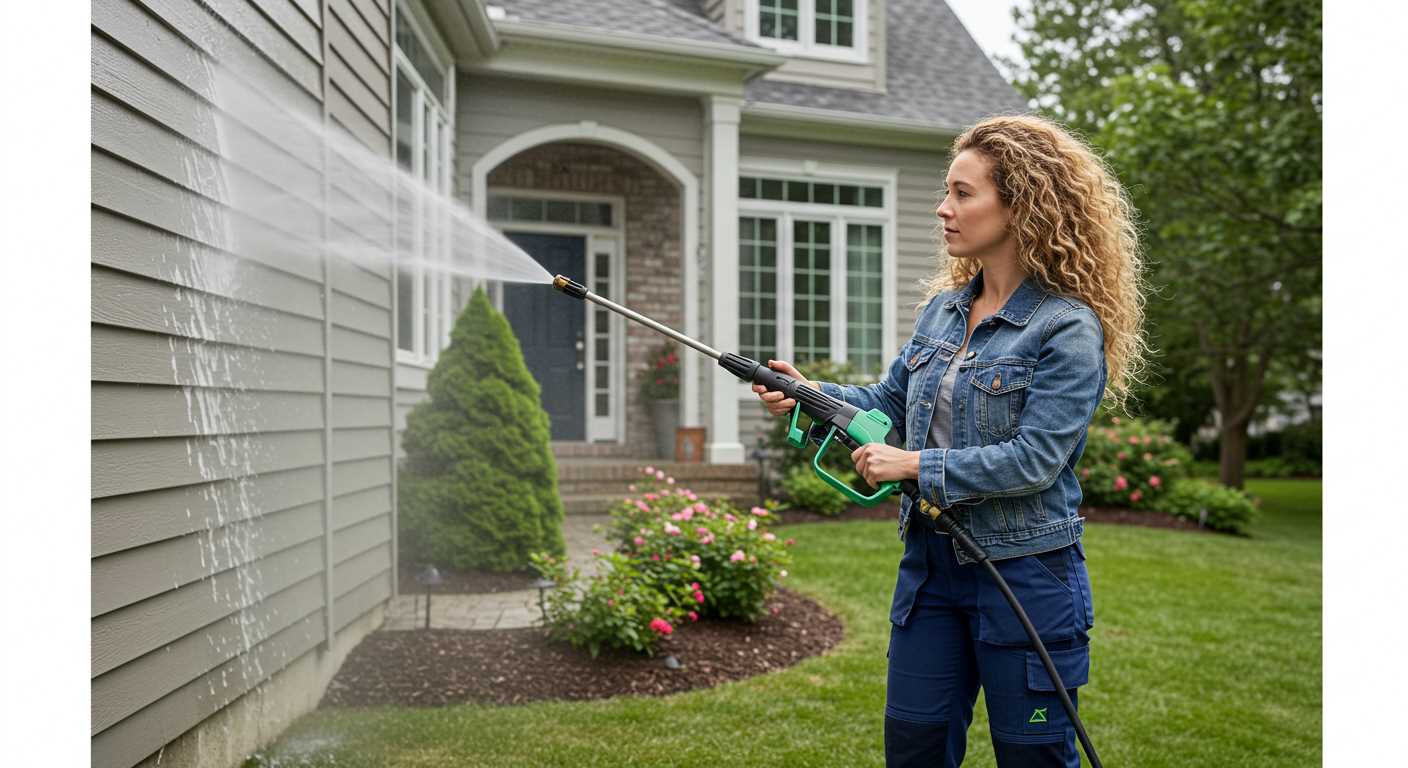
Craftsman is a trusted name in home improvement tools, and their line of cleaning devices does not disappoint. Customers often commend the durability of these models, making them a great investment for long-term use.
Choosing any of these reputable brands ensures access to quality equipment that can tackle a variety of cleaning tasks with ease and efficiency.
Comparison of Electric vs Petrol Pressure Washers
Electric models are typically quieter, lighter, and easier to manoeuvre. They suit tasks like cleaning patios, garden furniture, and vehicles. A notable electric variant operates between 1,300 to 2,000 watts, producing sufficient force for these applications. For residential cleaning, you may appreciate the convenience of a simple plug-and-play setup without the need for fuel handling.
Pertaining to maintenance, electric units shine due to fewer moving parts. This translates to lower upkeep costs and a longer lifespan. However, power limitations can be a hurdle. If you’re targeting tougher grime on surfaces such as brick or concrete, their performance may fall short compared to their petrol counterparts.
Petrol Models: Power and Portability
Petrol machines pack a punch, making them ideal for more demanding tasks where portability is essential. They can deliver pressures exceeding 3,000 PSI, making them a powerhouse for cleaning driveways, façades, and heavy machinery. The absence of cords allows for greater movement across larger areas, unrestricted by proximity to an electrical outlet.
Nevertheless, the upkeep of these units involves greater complexity, including fuel management and engine maintenance. They often generate more noise and emissions, which could be a consideration depending on your surroundings.
Choosing the Right Option
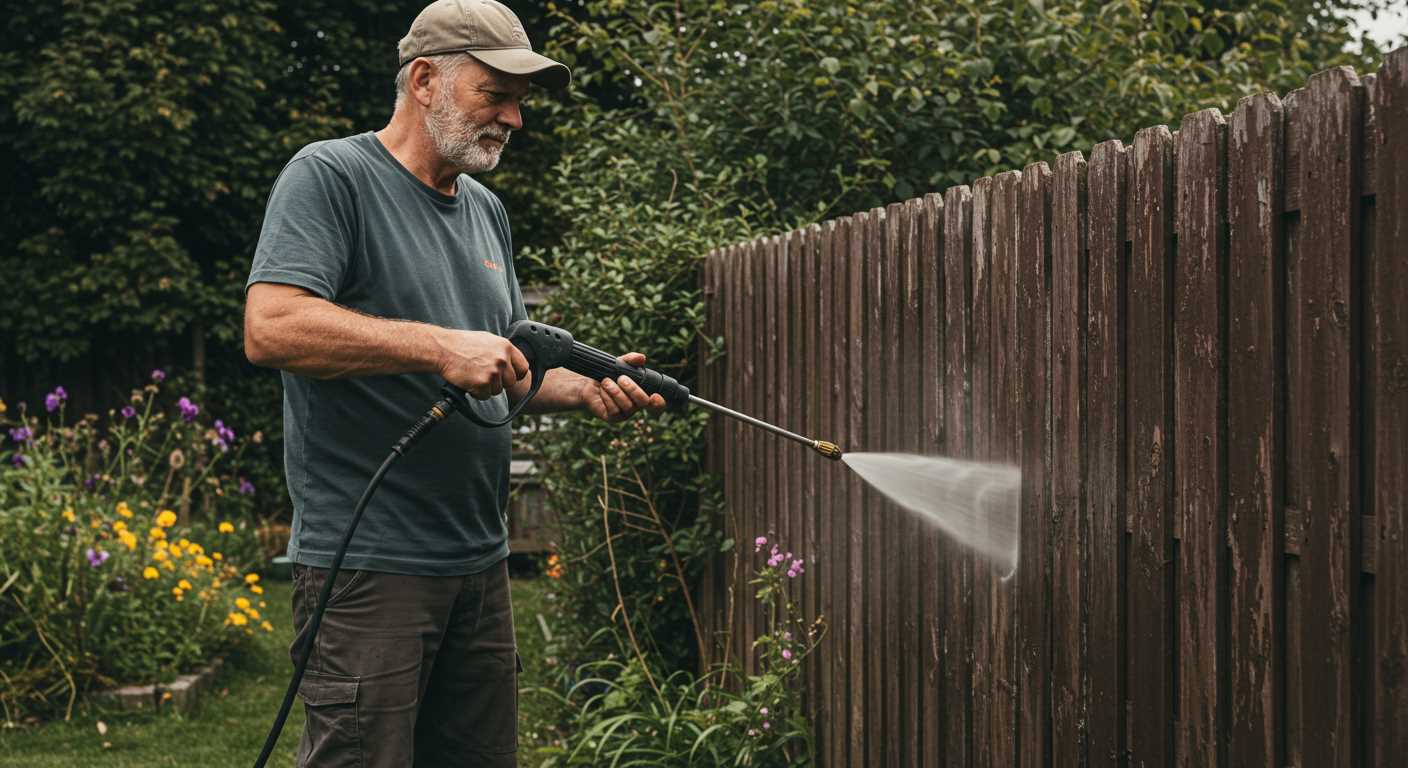
Assess the frequency and nature of your cleaning needs before making a choice. If you regularly tackle light to medium tasks, an electric model could be the optimal choice. Conversely, if your requirements are more demanding with extensive outdoor spaces, investing in a petrol machine would be advisable for the extra power and efficiency it offers.
Maintenance Tips for Longevity of Your Pressure Cleaning Device
Regularly inspect and clean the filter to ensure optimal water flow. A clogged filter can hinder performance and increase wear on internal components.
After each session, release any remaining pressure according to the manufacturer’s instructions. This step prevents potential leaks and damages during storage.
Winter Storage Precautions
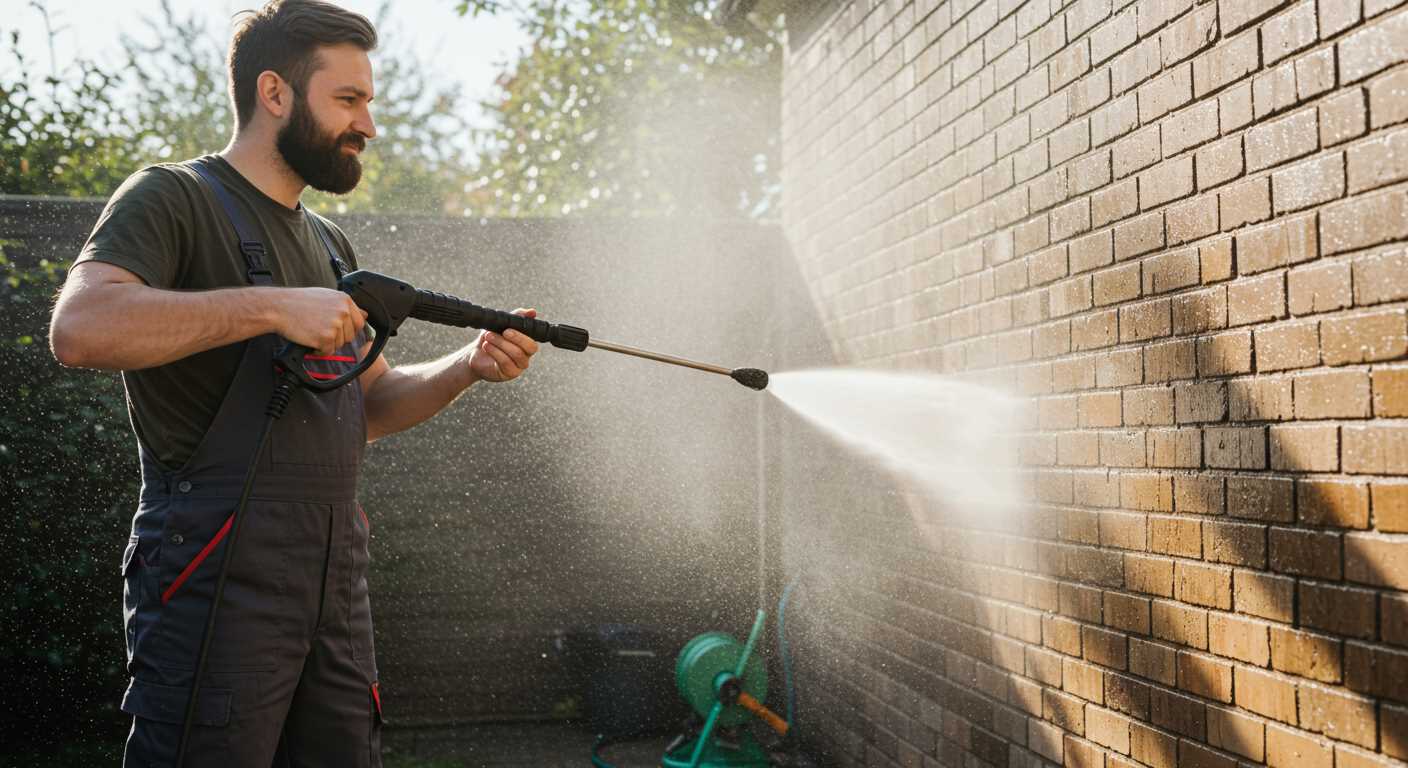
In colder months, ensure to drain all the water from the unit to avoid freezing and cracking of the internal components. Consider adding antifreeze to the system if you anticipate extreme temperatures.
Routine Checks
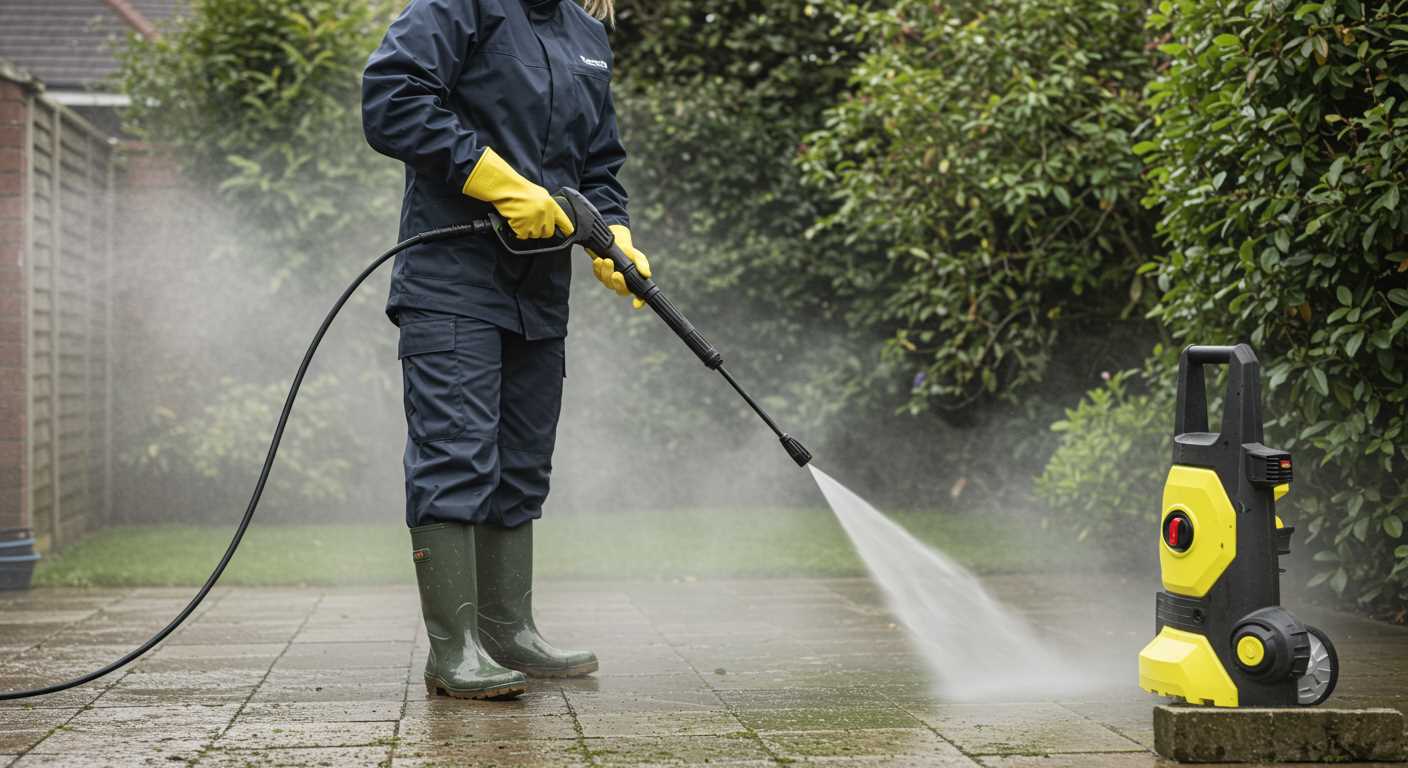
Check the hoses and connectors for any signs of wear or damage. Replace any frayed or cracked hoses promptly to maintain safety and efficiency. Regularly examine the nozzle tips; a clean and correct nozzle type is vital for achieving desired results.
Finally, refer to the owner’s manual for specific maintenance schedules, lubrication points, and replacement parts recommendations. Adhering to these practices will significantly extend the lifespan of your cleaning equipment.
Common Accessories to Enhance Your Pressure Washing Experience
Integrating certain add-ons can significantly elevate the efficiency and versatility of your cleaning equipment. A rotating nozzle is a prime choice, providing a concentrated swirl of water that drastically improves cleaning capability, especially against stubborn grime and dirt.
Another must-have is the surface cleaner attachment. This tool works wonders on flat surfaces like driveways and patios, ensuring uniform coverage without the streaks often left by standard nozzles. It can save time while maintaining a professional finish.
Don’t overlook soap nozzles. These are designed to maximise the application of cleaning agents, making it easier to tackle tough stains. Opt for a unit compatible with your specific equipment to avoid any compatibility issues.
For those hard-to-reach areas, extension wands are invaluable. They allow you to clean elevated surfaces such as gutters or second-storey siding without needing a ladder, enhancing safety while increasing your reach.
If you often work on delicate surfaces, a brush attachment can help. This accessory enables gentle scrubbing while applying water, effectively cleaning while protecting the surface from potential damage.
Lastly, consider investing in a water filter. It can prevent debris and sediment from clogging up your gear, ensuring a longer lifespan and better performance.



